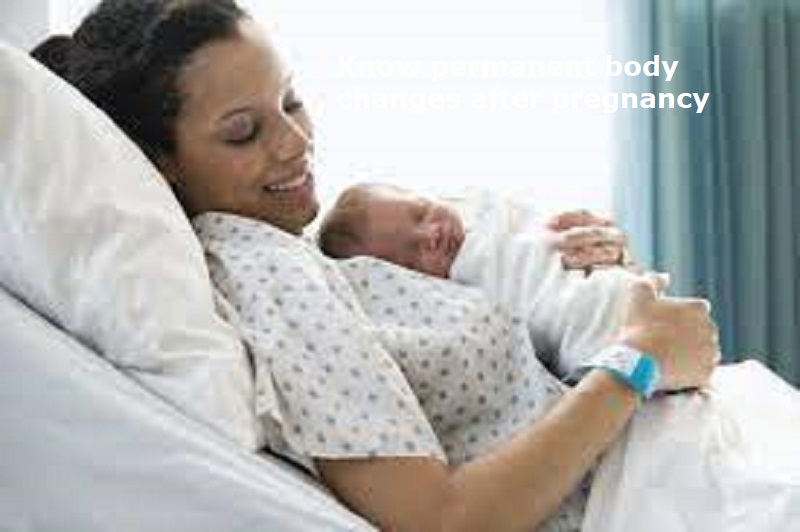
Life of women changes after pregnancy . Most women undergoes a major transformation in her body during the pregnancy journey. Most women encounters a new set of physical and emotional symptoms after pregnancy. As per medical experts, a mother’s body requires time to recover from a process as important as pregnancy. Depending on the person’s health and delivery method, the recuperation period’s length varies from case to case.
These are the physical changes in a women’s body after pregnancy;
Postpartum Bleeding: The most common symptom a mother may experience after birth is a discharge called lochia which resembles a menstrual period and can last up to four- or six weeks post-delivery. The lochia is a discharge consisting of blood, pieces of the uterine lining, mucus, and white blood cells which are caused by the shedding and restoration of the uterine lining.
Hormone Fluctuations: After delivery, a mother’s body experiences hormone fluctuations where estrogen and progesterone levels drop, and the level of oxytocin increases leading to anxiety in most cases. When estrogen and progesterone levels drop, new mothers tend to experience baby blues, a condition where mothers undergo a stark rise in mood swings, anxiety as well as irritation.
Also Read: Everything you need to know about ‘Vaginismus’
Low-Iron Levels: New moms are at higher risk of iron deficiency following childbirth, due to blood loss during delivery which leads to exhaustion and fatigue. In these cases, eating iron-rich foods like red meat, fortified whole-grain products, beans, lentils, and leafy greens along with vitamins A, E, C, and B complex, choline, chromium, copper, iodine, selenium, and zinc is helpful to maintain iron levels.
Enlarged Breasts: When estrogen and progesterone levels drop, a hormone named prolactin which helps in the production of breastmilk kicks in. The increase in prolactin makes a new mother’s breasts comparatively bigger than they were during pregnancy due to increased blood flow and milk.
Swollen Areas: In cases of vaginal delivery, a new mother undergoes a swollen, bruised, and sore crotch while in a C-section delivery, a mother experiences a puffy belly and a painful incision. Both of these symptoms gradually get better over several weeks.
Constipation: A new mother even undergoes urinary or faecal incontinence due to the pressure during labour.

Post Your Comments